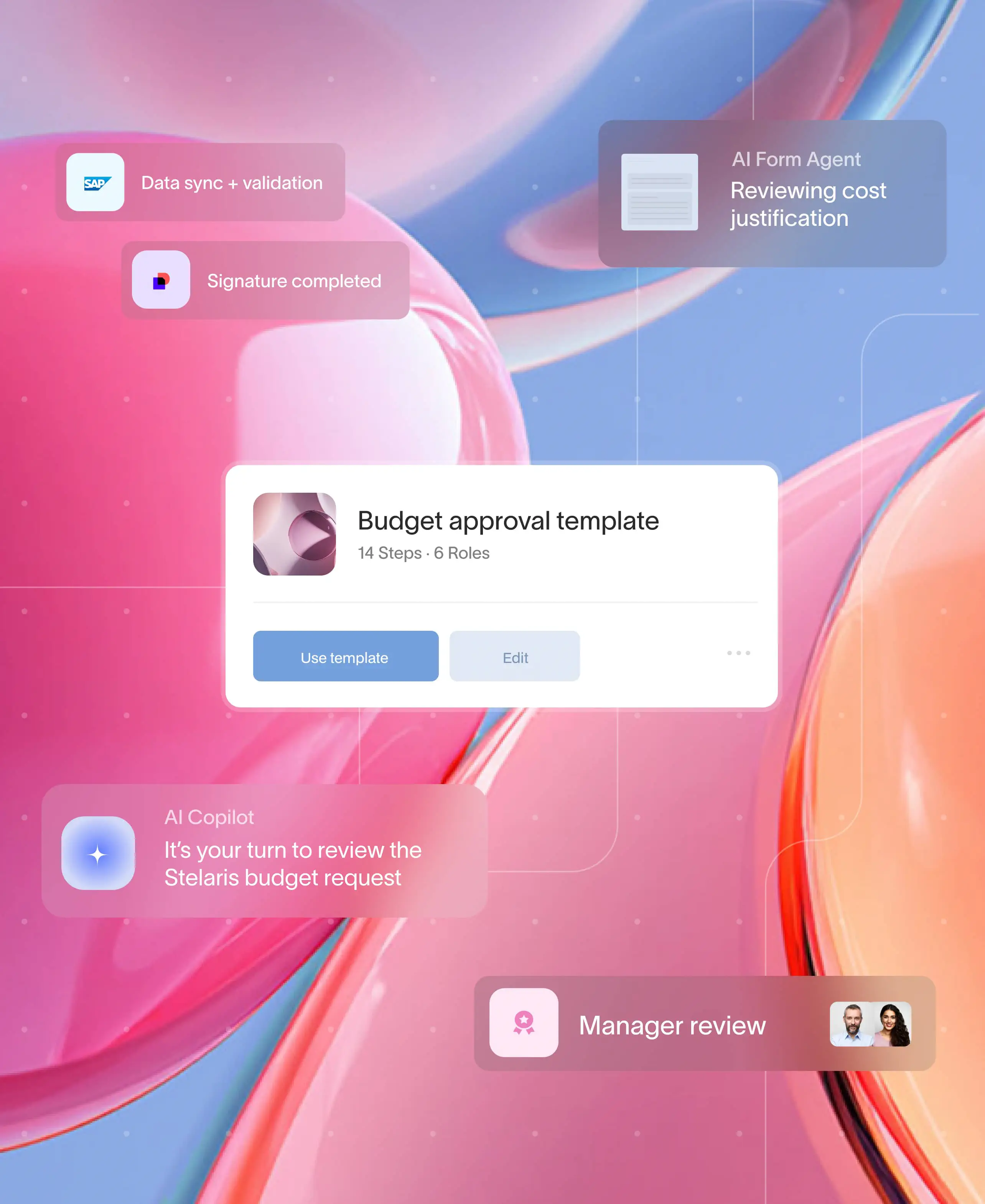
At a glance
Struggling to choose between a white label and custom client portal? Here’s the quick breakdown:
Speed wins in competitive markets: White label portals are ready in 2-4 weeks, while custom portals require 6-12 months or more.
Cost reality check: White label solutions cost $30K-$150K over 3 years; custom portals range from $150K-$750K.
Modern flexibility breaks old rules: White label portals offer proven workflows and automation out of the box, while custom portals are ideal for unique, complex processes.
Impact: Businesses like Peninsula Visa and 1852 Media have drastically improved efficiency and client experience using white label portals.
Choose white label solutions for speed and simplicity, or go custom if your business requires a fully tailored approach.
The portal decision that's costing you customers
Every client interaction is a brand moment. But if your onboarding is clunky, document sharing is scattered, or approvals are lost in inboxes, your customer experience is taking the hit. Today’s B2B clients expect more than emails and spreadsheets. In fact, 90% of customers say they expect businesses to offer a self-service portal. But with so many options, teams often face a high-stakes choice: do you build your own custom web portal or deploy a white label client portal software? Making the right choice can mean the difference between customer churn and loyalty.
In this article, we’ll break down the key differences between white label portals and custom portals, helping you understand which option best aligns with your brand, workflows, and customer expectations.
What is a white label portal
A white label client portal is a pre-built, customizable platform that businesses can rebrand as their own. Think of it like buying a car; the engine, transmission, and safety features are already engineered and tested. You just choose the color, add your logo, and drive away.
These platforms come with essential features out of the box:
- User authentication and role-based access control
- Document sharing and management systems
- Built-in messaging and notification tools
- Custom branding options (logos, colors, domain names)
- Workflow automation and client interaction modules
What is a custom portal
A custom portal is a bespoke, web-based platform built from scratch specifically for your unique business requirements. It's like commissioning a custom race car - every component is designed exactly how you want it, but you're paying for engineering time, testing, and potential redesigns.
Custom portal capabilities include:
- Unlimited dashboard and widget customization
- Business-specific object associations and navigation
- Fully customized workflows and action catalogs
- Deep integration with internal databases and proprietary APIs
- Enterprise-grade security with granular permission controls
Who should choose what: white label vs custom portal
Real-world decision framework
Choose white label portals when:
- You need to launch within 30 days
- Your workflows match standard business processes
- The budget is under $50K annually
- You want predictable costs and a timeline
- Vendor support is important to your team
Choose custom portals when:
- You have truly unique business processes
- The budget exceeds $200K for the project
- You have 12+ months for development
- The internal development team can maintain the solution
- Competitive differentiation justifies the investment
Consider hybrid platforms when:
- You need custom workflows, but fast deployment
- You want flexibility without development overhead
- You need white-label branding with custom functionality
- Integration with existing systems is critical
Making the final decision
Start with these questions:
- How unique are your workflows? If they're 80% standard, white label works.
- What's your timeline? Less than 6 months favors white label.
- Who will maintain the portal? No internal team means white label.
- What's your total budget? Under $100K suggests white label.
- How important is vendor support? High importance favors white label.
The bottom line: Most businesses overestimate how custom their needs actually are. Unless you have truly unique processes that create a competitive advantage, white label delivers better ROI.
How Moxo bridges the gap
Here's where the traditional white label vs custom debate breaks down. Modern platforms like Moxo offer the speed of white label with the flexibility that used to require custom development.
Lightning-fast deployment
White label portals deploy in weeks, not months. BNP Paribas cut its onboarding time by 50% using a white label solution that integrated seamlessly with its existing workflows.
Moxo's workflow builder lets firms like Sherwood Partners create custom approval chains for M&A due diligence without writing code. They got custom functionality in weeks, not months.
Moxo's white label client portal integrates with 100+ of the most popular CRMs (Salesforce, HubSpot, PipeDrive, Wealthbox, etc), ERPs (MS Dynamics 365, Zoho, etc.), and financial tools (QuickBooks Online, Jumio, Stripe, Xero, etc.) in the market.
Proven features that actually work
Every feature in a white label client portal is designed to streamline business processes, with no guesswork, no testing in production. With platforms like Moxo, you get enterprise-grade tools that have been validated across industries.
For example, Peninsula Visa reduced client drop-offs by 70% and cut document processing time by 93% using Moxo’s automated notifications, workflow builder, and document management tools. Progress tracking, reminders, and secure file sharing kept visa applications moving without manual follow-ups.
1852 Media saw a 30% increase in clients handled per manager by leveraging Moxo’s branded portals, approval engine, and agentic AI features. These tools helped create client-specific workflows while maintaining a consistent, white-labeled experience.
Other built-in, battle-tested features include:
- Secure document management with version control and annotations
- Multi-step approval flows based on roles and rules
- Audit trails that log every interaction and decision
- Embeddables and SDKs to insert workflows into your app or website
Predictable costs and timeline
White label pricing is transparent. You know exactly what you're paying upfront, with no surprise development overruns or scope creep disasters.
Built-in compliance and security
Financial services firms like Keebeck Wealth Management chose white label specifically because compliance features were already built in and audited. No need to hire security consultants or worry about regulatory gaps.
You don't need to choose between fast deployment and custom functionality anymore.
Ready to choose your portal strategy?
The portal decision comes down to speed versus control. White label gets you serving clients better within weeks. Custom development might get you the perfect solution in a year, if everything goes according to plan.
Most successful firms choose the path that improves client experience the fastest. In today's competitive market, the cost of waiting often exceeds the cost of compromising on perfect customization.
Get started with Moxo to deliver custom functionality with white label speed, without the traditional tradeoffs.
FAQs
How quickly can I deploy a white label portal compared to custom development?
White label portals like Moxo deploy in 2-4 weeks with full branding customization, while custom portals require 6-12 months minimum. You can have clients using your branded portal this month instead of waiting until next year.
What's the real difference in customization between white label and custom portals?
Modern white-label platforms offer extensive customization through workflow builders and embeddable components. The key difference: white label gives you proven functionality with customization, while custom gives you unlimited flexibility with development risk.
Can a white-label client portal handle complex business processes like custom solutions?
Yes, platforms like Moxo support conditional logic, branching workflows, and industry-specific compliance requirements. Many businesses find white label solutions handle 90% of their "unique" processes without custom development.
How do white-label client portal costs compare to custom development over 3-5 years?
White label typically costs $30K-$150K over 3 years (including subscription and setup). Custom development costs $150K-$750K over the same period (including development, maintenance, and support staff). The ROI difference is substantial.
What happens if I outgrow my white label client portal solution?
Leading platforms like Moxo offer enterprise solutions that scale with your business. Most companies find they never actually outgrow modern white label platforms; they just need better implementation and training.






